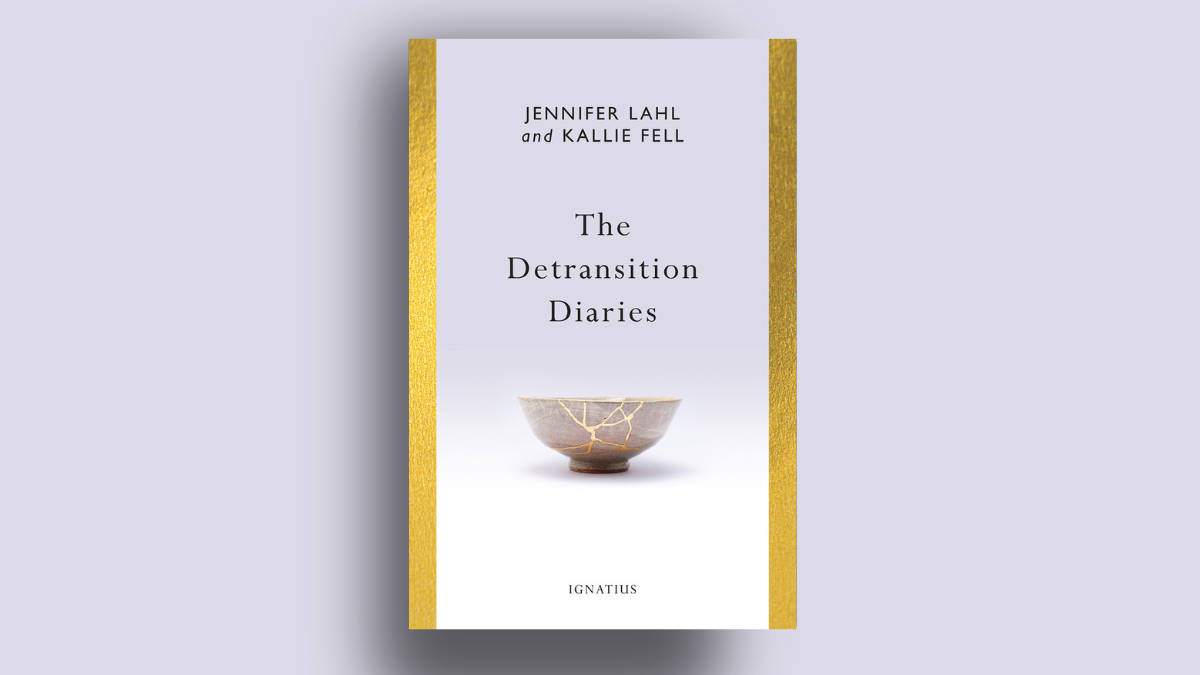It’s time once more for the annual Federalist notable-books-of-the-year column. Federalist writers, as well as those in the publication’s large and growing orbit, take stock of the books we read this year. Unlike other annual lists, this is not necessarily a list of books that came out this year, just the ones that Federalist writers happened to read in 2023 and found worthy of recommending.
Madeline Osburn
My most eccentric college professor, Dr. Weathers, brought a grocery store birthday cake with the words, “Make it witchy,” piped in red icing to class one afternoon. I believe it was on or around Halloween. It was a New Journalism class in the English department, and the assigned reading that day was Joan Didion’s essay, “The White Album.” This was my first introduction to the Charles Manson murders, and while a good one, I now realize it was only scratching the surface after reading Chaos: Charles Manson, the CIA, and the Secret History of the Sixties by Tom O’Neill this year.
Chaos is a shocking story that alleges everything previously known to the public about Charles Manson and the Tate murders is wrong. It is also arguably a work of New Journalism in the way O’Neill brings readers along on his journey chasing paper trails and knocking on doors as he uncovers never-before-reported details about Manson and “The Family.” It’s a book with something for everyone: music, psychedelics, true crime, and secrets hidden at the highest levels of the American government. If anything, Dr. Weathers would love it.
My other notable book this year, which I reviewed at The Federalist, is Domestic Extremist: A Practical Guide to Winning the Culture War, a new book by online anon Peachy Keenan. The genre of anti-feminist books is certainly taking off (Mary Harrington’s Feminism Against Progress and Mary Eberstadt’s Adam and Eve After the Pill Revisited were also released this year), but Keenan’s is the most accessible and pragmatic in her prescriptions for one of our most dire societal problems: plummeting marriage and birth rates. Take heart, there are no prairie dresses or sourdough starters required.
Spencer Klavan
This year as I wandered through Landmark Booksellers (the happiest place in Tennessee… or at least, my happy place in Tennessee), I had one of those weird experiences where a book’s cover keeps smacking you between the eyes, even though it’s way out of your wheelhouse. This time it was Chinese science-fiction writer Liu Cixin’s The Three-Body Problem, which I finally bought because something was pulling me toward it even despite the loud endorsement from Barack Obama on the jacket. Does this count as judging or not judging a book by its cover? I’m unsure, but in any case, it was a marvelous find. This is hard sci-fi in the sense that it’s based on the real history of science and complex ideas in physics, but it’s also wonderfully evocative and gripping.
The English version, translated by Ken Liu, opens with a depiction of the Cultural Revolution so scathing that it had to be moved to the middle of the narrative when it was originally serialized in China, to escape the notice of the censors (which is profoundly amusing since I assume it means the dunderheads don’t read all that carefully). This alone is worth the price of the book, and it gets better from there. I can’t wait to read the sequels, The Dark Forest, Death’s End, and The Redemption of Time. I’ll also watch the forthcoming Netflix adaptation, though odds are they’ll bollocks it up.
I also enjoyed William Dalrymple’s The Anarchy (don’t let the performative wokeness of the ad copy deter you — it’s pitched on the cover as a screed against the British empire, but it’s actually a detailed and nuanced history of the East India Company’s corporate takeover of its host country). Chadwick Moore’s Tucker biography is also well worth reading as a summation of the man’s work to date.
Shawn Fleetwood
If you want to learn more about the current state of the U.S. Navy, then Brent Sadler’s U.S. Naval Power in the 21st Century: A New Strategy for Facing the Chinese and Russian Threat is the book for you. It’s a compelling read that details the biggest problems facing America’s maritime force and gives attention to a highly underreported issue that will affect the United States’ standing in the world order for decades to come.
Relatedly, The Final Struggle: Inside China’s Global Strategy by Ian Easton provides insight into America’s greatest geopolitical foe and a greater understanding of the inner workings of the Chinese Communist Party. As the ancient Chinese Gen. Sun Tzu wrote in The Art of War, “If you know the enemy and know yourself, you need not fear the result of a hundred battles.”
Rise of the Fourth Reich: Confronting COVID Fascism With A New Nuremberg Trial So This Never Happens Again by Steve Deace and Daniel Horowitz offers readers a necessary look at the cruelest aspects of America’s fascistic Covid response. From the mask and shot mandates to the denying of early treatment options, the book leaves no subject untouched and allows the victims of these horrific policies to share their stories with the world.
Meanwhile, Mark Levin’s The Democrat Party Hates America provides readers with a deep dive into the history of the left’s decades-long campaign to undermine the American constitutional system. Filled with extensive historical analysis, the book examines how Democrats managed to capture every major institution in the country and are actively destroying what remains of the American republic.
Jordan Boyd
When Jennette McCurdy’s memoir I’m Glad My Mom Died first hit the shelves in 2022, I was hesitant to pick it up. The jarring title juxtaposed with a smiling McCurdy holding a bright pink urn on the yellow cover felt crass. What I prematurely deemed as another vapid celebrity book, however, turned out to be a gut-wrenching true story about the abuse, bulimia, and binge-eating that coincided with the Nickelodeon actress’s rise to fame.
McCurdy’s dry delivery of the complex relationship she had with casting calls, her hit show “iCarly,” and, most importantly, the Hollywood-hungry mother who forced her into the world of fame makes for a captivating read well worth the bestseller accolade.
McCurdy’s memoir could easily be read in tandem with Jill Duggar Dillard’s biography Counting the Cost, which documents the years-long battle she and her husband Derick faced to secure the money her parents made off of publicizing her and her siblings’ lives. The similarities between the two women, the former a recovering alcohol addict and the latter a married stay-at-home mom to three, could not be starker, but their stories contain eerily similar commentary about the dangers of prioritizing profit over children’s privacy.
There’s no doubt that Dilliard wouldn’t have a bestselling book or booming follower count without the prominence and exposure that came with her appearance on the Duggars’ several TV shows. The problem, Dillard recounts in her book, was that she hardly had a say in her participation in those shows — even after she was married. The book’s conclusion features a unique description of what it takes to heal from childhood wounds while still keeping a close relationship with God and family.
Sam Mangold-Lenett
One of the political things with which I most concern myself is the trajectory of the conservative movement. At any given moment, there are approximately a quadrillion pundits gatekeeping conservatism as they tell us what should and should not be considered conservatism. This is profoundly unhelpful and naturally omits much relevant discourse from the conversation. I found the Up from Conservatism: Revitalizing the Right after a Generation of Decay and A Paleoconservative Anthology: New Voices for an Old Tradition essay anthologies to be extremely helpful in informing myself about the current state of our movement and about parts of it that are often overlooked for political convenience.
Published by Encounter Books, Up from Conservatism features essays from people like former National Security Council adviser Michael Anton, Editor-in-Chief of Blaze Media Matthew Peterson, and Executive Director of The Claremont Institute’s Center for the American Way of Life Arthur Milikh. The Paleoconservative Anthology, edited by Paul Gottfried, features contributions from just as many stalwart conservative intellectuals and attempts to define the characteristics and role of contemporary paleoconservatism.
The Rifle: Combat Stories from America’s Last WWII Veterans, Told Through an M1 Garand by Andrew Biggio is a series of interviews with World War II veterans as they recall their time in the service. Biggio, having previously served in the Marines in both Iraq and Afghanistan, uniquely connects with these men as they reflect on the triumphs and traumas of their time in the war. I picked up a copy on a whim at Barnes & Noble and am incredibly glad I did. As the men and women from this generation continue to pass on, we will need to continue telling their stories.
Anyone who enjoys graphic novels ought to grab a copy of Teenage Mutant Ninja Turtles: The Last Ronin. Fans of the Heroes in a Half Shell will be delighted to know that The Last Ronin features a reunion of TMNT co-creators Kevin Eastman and Peter Laird as they tell the story of the Hamato and Oroku Clan’s final showdown. Similarly, comic book fans who grow tired of the woke nonsense from major publishers should check out Isom by Eric July. Isom is the first title launched by July’s startup publishing company, Rippaverse, launched as a rebuttal to industry standard inconsistencies and ideological warfare being waged by major comic publishers against their fans.
Tristan Justice
With Brain Energy: A Revolutionary Breakthrough in Understanding Mental Health — and Improving Treatment for Anxiety, Depression, OCD, PTSD, and More, Harvard Clinical Psychologist Christopher Palmer has published a desperately needed framework to rethink our seemingly endemic mental health crisis. While the book was published in November of last year, Palmer outlines how the spiritual demons that comprise our mental health crisis are really just the manifestation of widespread metabolic dysfunction.
In other words, psychological disorders are not chemical imbalances as much as imbalances resulting from some other area of dysfunction in the body. Palmer presents his theory of “Brain Energy” by drilling down to the mitochondria to explain how mental illnesses that seem far different almost always share a common cellular pathway. Our brains are no different from any other organ, in terms of how optimal function depends on lifestyle habits from the right amount of light and sleep to proper diet and exercise.
“Mental disorders — all of them — are metabolic disorders of the brain,” he argues. “Essentially all the risk factors for mental and metabolic disorders are the same.” The research on mental illnesses with different symptoms yet the same root causes is a promising start to reconceptualizing our mental health crisis as a lifestyle one.
On a different note, Britney Spears was forced to keep her mouth shut about everything she had been through at the behest of a greedy family for more than a decade. Now, after 13 years of conservatorship (despite an astonishingly productive career during that time), the princess of pop is out with a new memoir to finally share her story: The Woman in Me.
From her public breakup with Justin Timberlake to her family’s abuse, Spears’ quick and easy read offers a fascinating firsthand account of the life of one of the world’s most famous pop stars. She was framed as crazy by family members who sought to capitalize on her estate. She was scandalized by a press eager to capture the reactions they provoked. She was humiliated in public when Timberlake embarked on a PR blitz to blame her for a breakup that he initiated by text. And then, 20 years later, Spears revealed in her book for the first time how she aborted the baby of “America’s Golden Boy” because he didn’t want to be a father.
“To this day,” she wrote, “it’s one of the most agonizing things I have ever experienced in my life.”
Sumantra Maitra
This year saw the start of our history podcast, named “History Reconsidered” with my co-host and a fellow writer in these pages, Jarrett Stepman. That naturally entailed a lot of rereading of older history books and a few newer ones, mostly focused on foreign policy realists, and how conservative realism is both natural and universal, regardless of regime type, character, or religious affiliations.
Of those, I would strongly recommend The Byzantine Lady: Ten Portraits, 1250–1500. Not much is heard of women diplomats from the Middle Ages, much less about Byzantine and Eastern Orthodox ones. I have been fascinated by Mara Branković, and this book is a good primer about her and similar others.
Éminence: Cardinal Richelieu and the Rise of France is a terrific English study of Cardinal Richelieu and his times. Hard to find a biography of Richelieu that is so deeply personal as well as profound, written in the English language. I have also been doing some research, and therefore rereading Lords of the Desert: Britain’s Struggle with America to Dominate the Middle East and A Line in the Sand Britain, France and the Struggle That Shaped the Middle East, found in a two-book box set. It’s especially relevant in understanding the current Middle East and how the collapse of the Ottoman and the British Empire was, on balance, devastating for order in a region that needs equilibrium and discipline far more than democracy.
Finally, The Last Best Hope: A History of American Realism, is a forthcoming book by John Hulsman that charts the history of American realism in character studies from George Washington, James Monroe, and John Quincy-Adams all the way to Robert Taft, Richard Nixon, and Ronald Reagan. I had the pleasure to read an advance copy, and I recommend that everyone read it next year, given our changing times.
Emily Jashinsky
In light of “Oppenheimer” mania, I recommend reading two relatively new Cold War histories — Devil’s Chessboard: Allen Dulles, the CIA, and the Rise of America’s Secret Government by David Talbot and Chaos: Charles Manson, the CIA, and the Secret History of the Sixties by Tom O’Neill — paired with Stan Evans’ 2007 book, Blacklisted by History.
Devil’s Chessboard and Chaos are excellent on their own merits and rightfully come with strong recommendations from populist voices on the dissident left and right. Evans, though, did remarkable work based on the Venona files, exposing precisely how urgent and legitimate accusations from Joe McCarthy and others were in the shadow of World War II. And Blacklisted is no hagiography. Evans immediately confronts McCarthy’s many tactical and sometimes factual errors. Yet the reality is that nuclear technology erased borders in ways that were previously unfathomable throughout human history, and our government was clearly compromised.
Blacklisted is a useful supplement to the richly reported stories told by Talbot and O’Neill, who uncovered a wealth of shameful decisions by America’s new surveillance state. The abuses are shocking and strange and very much alive decades after the Church Committee sought to curb them, and long after the decline of the Soviet Union as well.
These books are popular, and they should be. I only recommend pairing them with Evans’ work for insight into why we opened up our government to this unaccountable shadow government. Things changed after Los Alamos in ways we still have not reckoned with.
Joy Pullmann
War On The American Republic: How Liberalism Became Despotism isn’t a book for normies. This deeply researched, 456-page history of American leftism by Hillsdale politics professor Kevin Slack helps explain how America “decline[d] from a republic to a despotic kleptocracy” (3) across the last century. It’s a heavily scholarly work bookended by polemic opening and closing chapters, revealing the author’s impressive ability to read great gobs of historical documents and recall their minute details. His ponderous academic ability shines through on every page.
Especially interesting to me were the pivot points between what Slack calls the three phases of American leftism: progressivism, liberalism, and radicalism. Leftists kept getting their philosophy shattered by massive events like World War I, World War II, and Vietnam, but responded by doubling down instead of changing course. In other words, leftism has become tyranny by repeatedly refusing to acknowledge its core ideas are false.
Just a few years ago, Americans were like the sons at the end of The Good Earth before they ravaged their patrimony. Now Americans see our inheritance is just about gone. At first you go bankrupt slowly, and then suddenly all at once.
As Slack documents, “at the federal level, the Constitution and documents like the Federalist Papers no longer explain how government actually works. Indeed they expose its illegitimacy. Thus legal appeals to the Constitution and precedent are often a farce.”
“Government now means administrative fiat with myriad exemptions; enforcement is selective and inconsistent, intrusive and violent, dependent on political connections, and often an outright shakedown.” “Prerogative has replaced the rule of law.” “Congress delegates lawmaking authority to administrative agencies, whose unelected bureaucrats make, enforce, and adjudicate their own rules — Madison’s definition of tyranny” (all 363).
Slack’s final chapter, in which the above quotations appear, is a truly stirring must-read. He unleashes righteous anger against those who have aided and abetted America’s decline. Those include many who call themselves conservatives, who have refused to attach their true and lofty ideals to the courage and spirit required to defend and enforce them.
David Harsanyi
Capitalism is taking a beating from both left and right these days. Swedish writer Johan Norberg’s The Capitalist Manifesto is an excellent corrective. Though the book doesn’t exactly plow new ground, it offers a clear-eyed, updated argument for the moral and material benefits of a free-market system. Lots of people should be reading this book.
An author who’s spent decades offering readers clarity is Thomas Sowell. Social Justice Fallacies, his slim new book, dismantles the trendy but dangerous identitarian arguments of the modern left. In some sense, it’s a companion to his classic The Quest for Cosmic Justice.
Tom Holland’s Pax: War and Peace in Rome’s Golden Age brings the author back to the Roman Empire. It’s the third in a trilogy that included Rubicon and Dynasty. The book covers the era from the Year of the Four Emperors to the Five Good Emperors. (Listen to “The Federalist Radio Hour” interview with Holland here.) What makes Holland special is his ability to write engaging, even novelistic, prose while displaying a deep, scholarly understanding of his subject matter.
As a middle-aged man, obviously I need to read as much as possible on the ancient world. Two other books that stood out for me this year were Rome and Persia: The Seven Hundred Year Rivalry by Adrian Goldsworthy and Assyria: The Rise and Fall of the World’s First Empire by Eckart Frahm.
With the Israeli-Palestinian conflict in the news again, I reread A Line in the Sand: Britain, France and the Struggle that Shaped the Middle East by James Barr. The book details the messy wrangling between the Western powers that created the modern Middle East. A Peace to End All Peace: The Fall of the Ottoman Empire and the Creation of the Modern Middle East by David Fromkin is similarly excellent, though less thorough. (Here is a list of my favorite books about Israel.)
Quentin Tarantino’s Cinema Speculation, a collection of essays about 1970s movies, is part film criticism and part memoir. Though I was already a fan, the director’s funny, contrarian takes on the era were a pure joy to read. I ended up rewatching many of Tarantino’s favorite films — “Bullit,” “Dirty Harry,” “Deliverance,” “The Getaway,” “The Outfit,” “Rolling Thunder,” etc. — with a new appreciation.
Since I had a bit of an obsession with Lou Reed, The Velvet Underground, and the Factory scene when I was younger, I picked up Lou Reed by Will Hermes. It was worth it. Obviously, this isn’t the first biography of the cantankerous musician, but it’s probably the best, offering more biographical insight into Reed’s motivations and music.
Finally, Faith, Hope and Carnage is a book-long interview of Nick Cave by Irish journalist Seán O’Hagan. Cave remains one of the most intriguing and unpredictable voices in modern music. This book covers everything, from his biography to his musical process to the loss of his son to his fascinating views on Christianity.
Kylee Griswold
In keeping with my toxic trait of arriving late to all cultural phenomena (Didn’t everyone “discover” “Breaking Bad” in 2021?), I missed Laura Dave’s 2021 hit novel The Last Thing He Told Me, which immediately became a No. 1 New York Times bestseller, spent over a year on the Times’ bestseller list for hardcover fiction, and was turned into an Apple TV miniseries (which unfortunately flopped). But starting from the time I picked up an abandoned copy of this book in a rental car, I couldn’t put it down.
In this mystery-thriller, which oscillates between the present time and the simpler days before the enigmatic Owen Michaels disappears, Dave is a master of character development and timing. Whether, like me, you need an interruption from the depressing news cycle, or you’re in search of a vacation read, look no further.
On a different note, this year I dove into one of the gifts I received last Christmas: the lovey first Theology of Home book, written by none other than Federalist contributors Noelle Mering and Carrie Gress. It’s penned from a Catholic persuasion but offers plenty of thought-provoking spiritual insights about home and hospitality for Protestant readers like me, as well as stunning photographs. I’m still chewing on passages like this as I prepare for my own holiday hosting:
Hospitality, like so much else in life, is the struggle and opportunity to reorient our internal axis outside of ourselves. … The less obvious, but perhaps greater imperative is to make these efforts not for the sake of feeding our egos but for the sake of serving another in the spirit and ethos of hospitality.
Helen Raleigh
Tania Branigan’s book, Red Memory: The Afterlives of China’s Cultural Revolution, was a collection of stories of Cultural Revolution survivors whom Branigan interviewed while reporting from China as a journalist.
Few events in China’s history have affected as many people as the Cultural Revolution (1966-1976). Yet the Chinese Communist Party (CCP) has devoted enormous resources and energy to erase the 10-year-long turmoil from the Chinese people’s collective memory.
The CCP’s project of forgetting has largely been successful. Still, some Chinese have chosen to fight for their right to remember, either driven by the duty of passing the historical lessons to future generations or out of guilt, hoping that remembering will absolve their past sins. They shared their stories with Branigan despite the Chinese authorities’ intimidation and threats. Chang Ping, one of the Cultural Revolution survivors, said, “Without the right to remember, there can be no freedom to forget.” Anyone who wants to learn more about the Cultural Revolution and its effects at a personal level should read this book.
Another book on China, Sparks, is about a group of daring Chinese citizens whom author Ian Johnson called “underground historians.” The group included artists, entrepreneurs, filmmakers, independent publishers, professors, writers, and photographers. Through their relentless efforts and by taking advantage of various media platforms, including films, blogs, photos, and social media, these underground historians uncovered historical figures and events since 1949 that the Communist Party omitted from its official records. The discoveries gave millions murdered by the party a voice that the party had tried to silence.
These underground historians’ efforts require tremendous courage and often come at steep personal and professional costs. The Chinese authorities prohibited the publication of their work, and a few of them paid the ultimate price, being mercilessly executed by the CCP. Reading this book is a way of paying respect to these fearless Chinese citizens.
John Davidson
There are some authors whose literary output is so imaginative and profound that one could spend a lifetime immersed in it without any need of commentaries, biographies, or criticism from other writers, however illuminating they might be. Such is the work of J.R.R. Tolkien, which stands wholly on its own. There is no better explanation or exegesis of it than the thing itself.
Perhaps that’s a radical thing to say these days, more than 85 years since the publication of The Hobbit and a half-century since Tolkien’s death. Entire academic conferences and fields of study have arisen to analyze and pontificate on his work, and there is today no shortage of Tolkien commentary and criticism — to say nothing of artwork, board games, video games, and endless Lord of the Rings paraphernalia. But none of that is really necessary to fully apprehend the meaning of Tolkien’s Middle Earth mythology, which of course is not mere “fantasy” but a deeply theological story about our own world and the human condition.
An exception to this rule would be a book published this fall, Tolkien’s Faith: A Spiritual Biography, by Tolkien scholar Holly Ordway, who delivers on the promise in her title. The book is partly biography — and in some places a welcome corrective to the official but somewhat controversial 1977 biography by Humphrey Carpenter — and partly an exploration of her subject’s closely held Roman Catholic faith, which deeply informed and shaped not only his work as an academic but his entire Middle Earth legendarium.
Chronologically written, Ordway tells the story of Tolkien’s life by way of his faith. Such an approach is perhaps the best way to write a biography of a man so completely formed by the Catholic Church that his creative output can only be fully apprehended with reference to its teachings. Along the way, the reader incidentally gets a brief history of the Catholic Church in the 20th century, and especially of Catholicism in England, where Tolkien belonged to a religious minority that only gained mainstream tolerance within his lifetime.
The only other book about Tolkien one might place alongside Ordway’s excellent biography is Joseph Pearce’s 1999 polemical in defense of Tolkien against his critics, Tolkien: Man and Myth. Like Ordway, Pearce delves into Tolkien’s religious beliefs, citing heavily from Tolkien’s letters to argue that the celebrated author’s creative vision was uniquely Catholic and Christian, and that to understand his work fully requires an engagement with his beliefs about God, man, and what Tolkien called the “true myth” of the Gospel.
Mark Hemingway
I know Cormac McCarthy’s death prompted a lot of people to go back and revisit his work, and I was one of them. I reread what is probably McCarthy’s most esteemed novel, Blood Meridian. I hadn’t read it since college, and unsurprisingly, my appreciation of the book had grown up with me — a lot of people consider it the greatest American novel since Moby Dick, and that is not in any way a hyperbole. While it is decidedly fiction, the book has many layers, and McCarthy’s stylistic approach masks how closely the events of the book are drawn from real historical events and characters. Everything McCarthy wrote is great, but Blood Meridian is a bucket-list read if you haven’t gotten around to it.
I plowed through a number of Charles McCarry novels this year — forget le Carré, for my money he’s the best spy novelist ever. A former undercover CIA operative and speechwriter for President Eisenhower and Nixon’s 1960 campaign, McCarry’s books, aside from being expertly written and plotted, are suffused with a degree of cynical realism that reeks of authenticity. Though fiction, his books are also provocative and convincing in ways that touch on American politics.
The Tears of Autumn, written in 1974, puts forth a very plausible theory about who was behind the JFK assassination. His 1995 novel, Lucky Bastard, uses very thinly veiled fictional characters to essentially postulate that Bill Clinton was a Soviet sleeper agent and Hillary is his handler. What’s also astonishing is McCarry’s prescience — Shelley’s Heart is about how a deep-state secret society steals the first presidential election of the 21st century by computer fraud, and the resulting political fallout of competing claims to the presidency threatens the Constitution. Did I mention this book was written in 1995? At one point, a character in the book muses, “A frontal assault on the Establishment could never succeed. It must be conquered camp by camp — first academia … then the news media, the churches, and the arts … then a whole new apparatus of special interest groups.”
Nearly two years ago, a friend in publishing asked me if there were any up-and-coming writers they should consider pursuing, and without hesitating I said, Peachy Keenan. The nom de plume of an Ivy league-educated L.A. housewife, Keenan was already attracting a minor following for her acerbic and hilarious columns exposing the false promises of whatever wave of feminism we’re currently crashing under. Though I did nothing more than text her name to a friend, one could hardly blame me for even trying to take meager credit for a book as good as Keenan’s Domestic Extremist: A Practical Guide to Winning the Culture War. The book begins with a declaration satirizing your progressive neighbors’ lawn signs:
IN THIS HOUSE WE BELIEVE:
Parents Are the Bosses of Their Kid
Babies Are Good, More Babies Are Better
Dating Is for Suckers
Two Genders Are Plenty
Your Career Is Overrated
Feminism Is a Cope for the Unpopular and Undateable
Mainstream American Culture Destroys Families
We Are Going to Win
And it only gets more fearless and amusing as the book goes on. It’s probably the funniest “political” book since the heyday of P.J. O’Rourke, but the jokes work because they’re observations rooted in the truth.
Well, that’s a wrap for 2023! Enjoy the holidays, and we’ll have more book recommendations for you next year.






